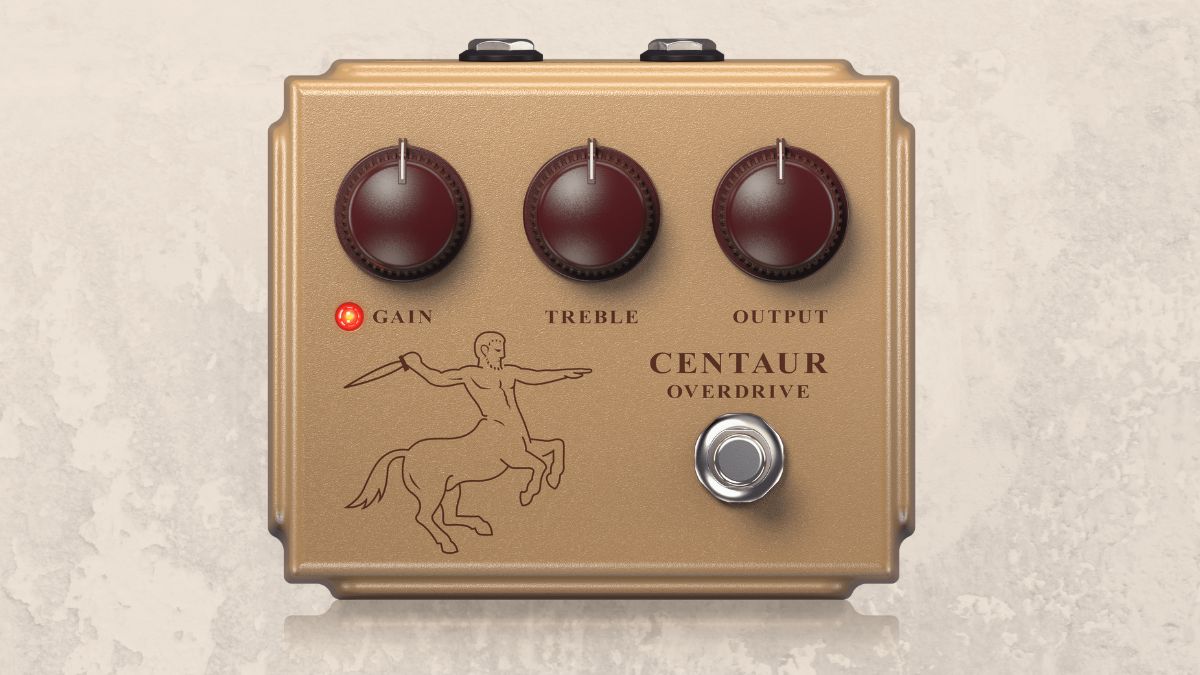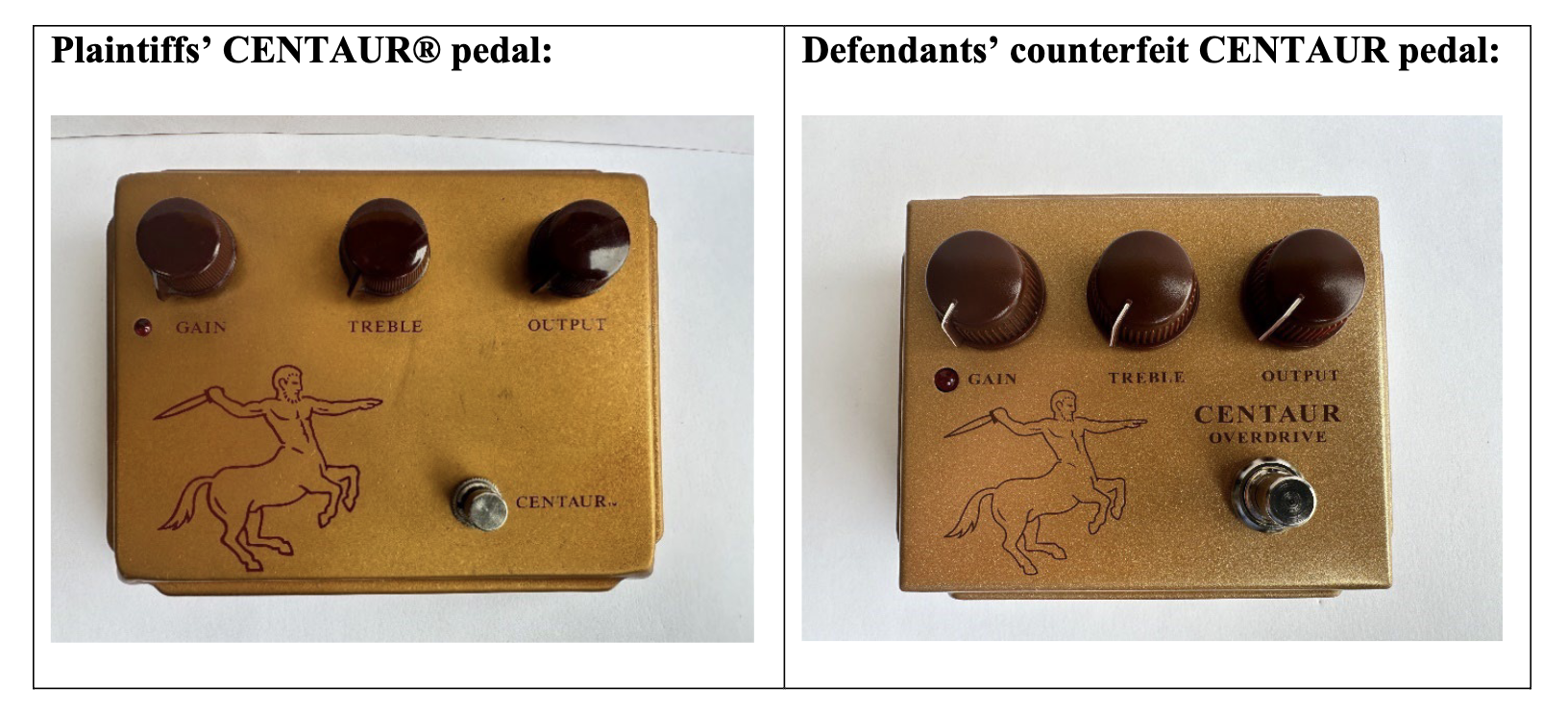“Not just another clone but instead a blatant counterfeit of Klon’s legendary pedal”: Klon creator Bill Finnegan is suing Behringer over the design of its Centaur Overdrive
Finnegan has accused Behringer's “counterfeit” pedal of using Klon’s trade dress and “exploiting” his firm's reputation

Bill Finnegan, the creator of the iconic Klon Centaur pedal has filed a lawsuit against Behringer owner MusicTribe for its $69 Klon copy.
The overdrive pedal, which launched in 1994, has since become one of the world's most sought-after pedals. Its success, and limited production runs, also mean that it is one of the most copied stompboxes in the game, with Finnegan warning that fake Centaurs were being sold “for big money” back in 2023.
The pedal’s legendary status and soaring prices on the second-hand market have seen countless manufacturers capitalize on the hype, usually with far more accessibly priced pedals.
Klon copies are a dime a dozen, with Joe Bonamassa and Way Huge's “virtually identical” Deep State and JHS' build-it-yourself Notaklön just two recent additions to the ever-growing copyist market.
By and large, Finnegan accepts that is a natural side effect to building a pedal that every guitarist is desperate to own. However, he feels Behringer’s pedal, which was released in November last year, “blatantly infringes upon specific intellectual property owned by my company.”
Put simply, Finnegan feels Behringer’s copy goes a step further than being inspired by the Klon circuitry. His filing alleges it uses trademarked imagery, its marketing hinges on the original Klon’s mystique, and it essentially pretends to be Klon-made, when it is anything but.
“Unlike nearly every other pedal currently shown on the Behringer website, the counterfeit Centaur does not include the Behringer mark on the face of the pedal – despite there being ample space for it,” notes the Klon team in its complaint.
All the latest guitar news, interviews, lessons, reviews, deals and more, direct to your inbox!
A post shared by Bill Finnegan (@klonllc)
A photo posted by on
Announcing the trademark dispute via Instagram, Finnegan says he was “never consulted” about the pedal, nor was it ever “authorized”, and his involvement in its creation was zero. He adds he will not publicly discuss the lawsuit while the case is active, but has shared the legal documentation that clearly states his case.
The complaint states “Finnegan has built and continues to build each Centaur overdrive pedal by himself, by hand, with many expensive custom parts and in a manner that no profit-prioritizing business would ever consider.”
Despite gaining a U.S. federal trademark registration for the Centaur in 2019, it says “[Behringer] decided to 'throw its hat in the ring' by announcing the launch of an overdrive pedal they shamelessly named the Centaur Overdrive.
“[Behringer] misappropriated and exploited [Klon's] intellectual property, extensive goodwill, and reputation by creating not just another clone but instead a blatant counterfeit of [Klon's] legendary pedal,” it continues.

In its initial press material for the Centaur Overdrive, Behringer claimed its budget stompbox delivers the original's “legendary transparent boost overdrive with huge dynamic range” and emphasized the pedal’s affordability compared to second-hand units which occasionally surface on Reverb and eBay.
Finnegan argues the nuances of the Centaur’s tones could not be properly recreated on such a shoestring budget.
Another key argument is the likeness of the pedal to the original. Most Klon copies are styled and branded in a manner that sets them apart from the original Centaur.
In some previous cases, manufacturers have successfully argued that the marks they’re accused of infringing have become generic in the eyes of consumers, but that would seem like a much easier argument to make around something like a Strat’s outline, than the Centaur branding.
As the Klon complaint alleges, Behringer’s pedal copies “nearly every element of the Centaur trade dress,” while the complaint adds that its promotional video “extensively discusses” the original Klon while “deceptively and continuously showing [the Behringer] counterfeit pedal.”
This isn’t the first time Behringer, known for its affordable gear imitations, has ruffled industry feathers. In February, Musitronics called out Behringer for another $69 replica, stating that the marketing surrounding its Mu-Tron III envelope filter finds “a $2 billion company assimilating the history of Musitronics as if it was their own.”
It will be fascinating to see how the lawsuit develops, and what it could ultimately mean for the future of Behringer and the wider pedal clone market.
Guitar World has approached a Behringer/MusicTribe representative for comment.
You can read Klon’s complaint filing and keep up to date on developments via the Klon Instagram.
A freelance writer with a penchant for music that gets weird, Phil is a regular contributor to Prog, Guitar World, and Total Guitar magazines and is especially keen on shining a light on unknown artists. Outside of the journalism realm, you can find him writing angular riffs in progressive metal band, Prognosis, in which he slings an 8-string Strandberg Boden Original, churning that low string through a variety of tunings. He's also a published author and is currently penning his debut novel which chucks fantasy, mythology and humanity into a great big melting pot.
You must confirm your public display name before commenting
Please logout and then login again, you will then be prompted to enter your display name.


![Mike Sullivan [left] of Russian Circles plays a Dunable electric guitar. Adam Jones [right] of Tool wears all white as he performs at Lollapalooza in 2009.](https://cdn.mos.cms.futurecdn.net/JzvHLXtiWjphtArnELCxMf.jpg)